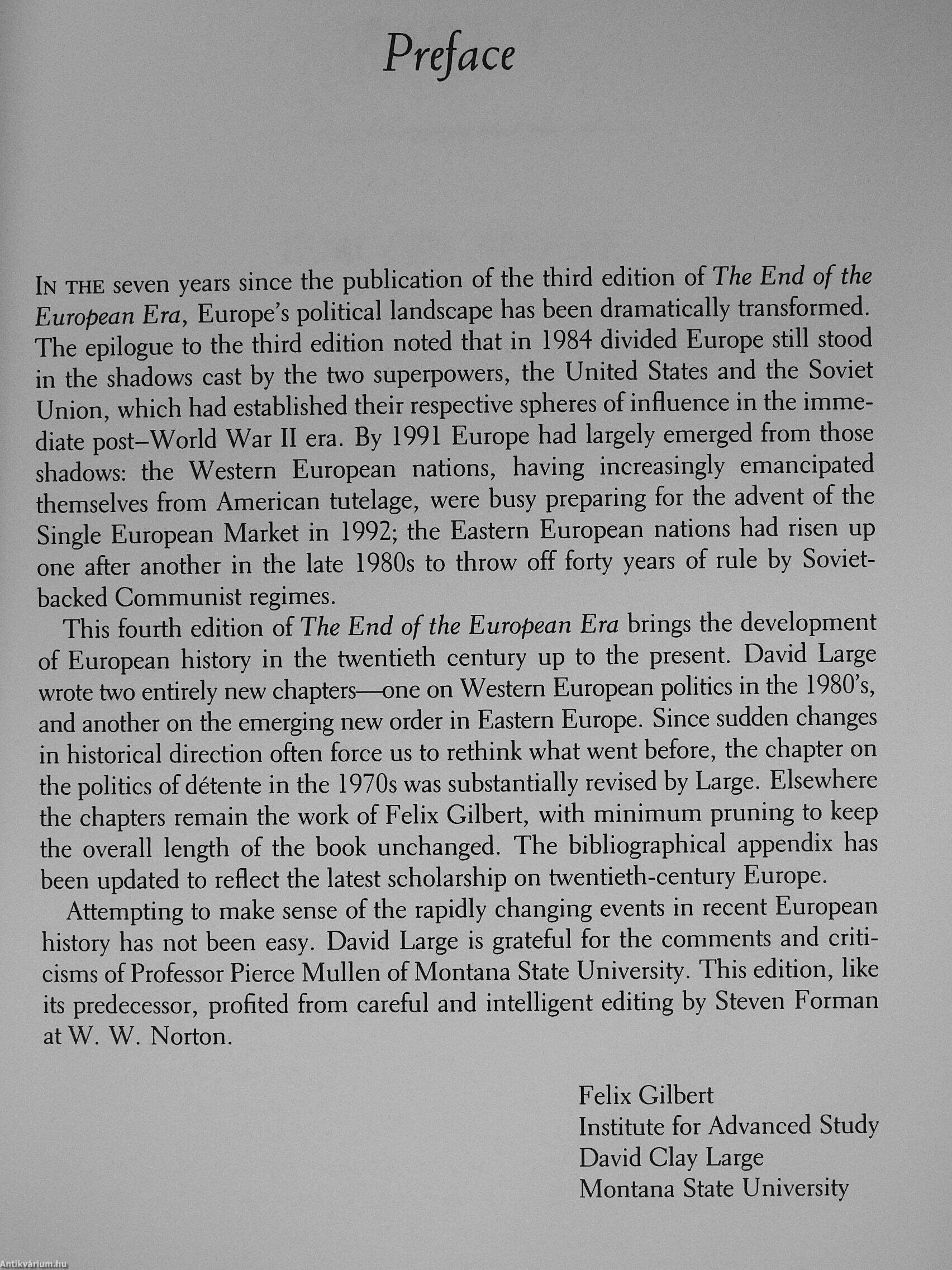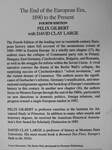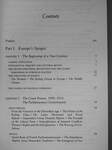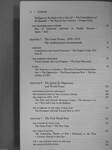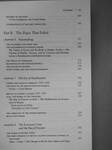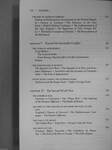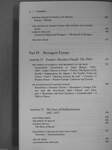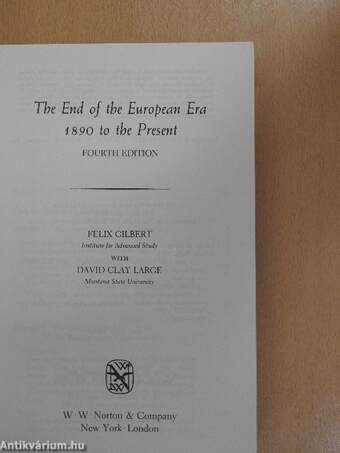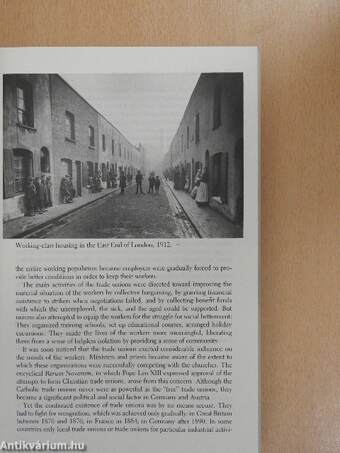1.066.801
kiadvánnyal nyújtjuk Magyarország legnagyobb antikvár könyv-kínálatát

VISSZA
A TETEJÉRE
JAVASLATOKÉszre-
vételek
The End of the European Era, 1890 to the Present
| Kiadó: | W. W. Norton & Company Inc. |
|---|---|
| Kiadás helye: | New York |
| Kiadás éve: | |
| Kötés típusa: | Ragasztott papírkötés |
| Oldalszám: | 598 oldal |
| Sorozatcím: | |
| Kötetszám: | |
| Nyelv: | Angol |
| Méret: | 21 cm x 14 cm |
| ISBN: | 0-393-96059-5 |
| Megjegyzés: | Fekete-fehér fotókkal. |
naponta értesítjük a beérkező friss
kiadványokról
naponta értesítjük a beérkező friss
kiadványokról
Előszó
TovábbFülszöveg
The End of the European Era, 1890 to the Present
FOURTH EDITION
FELIX GILBERT with DAVID CLAY LARGE
The Fourth Edition of the leading text in twentieth-century European history takes full account of the momentous events of 1989-1990 in Eastern Europe. In a wholly new chapter (17), the authors trace the collapse of Communist party rule in Poland, Hungary, East Germany, Czechoslovakia, Bulgaria, and Rumania, as well as the struggle for reform within the Soviet Union. A vivid narrative conveys the drama of the Berlin Wall's collapse, the surprising success of Czechoslovakia's "velvet revolution," and the violent demise of Ceausescu. The authors assess the significance of Gorbachev's reforms, Germany's reunification, and international realignments against the backdrop of Europe's tumultuous history in this century. In another new chapter (16), the authors focus on Western Europe through the end of the 1980s, particularly on new directions in domestic politics, foreign relations,... Tovább
Fülszöveg
The End of the European Era, 1890 to the Present
FOURTH EDITION
FELIX GILBERT with DAVID CLAY LARGE
The Fourth Edition of the leading text in twentieth-century European history takes full account of the momentous events of 1989-1990 in Eastern Europe. In a wholly new chapter (17), the authors trace the collapse of Communist party rule in Poland, Hungary, East Germany, Czechoslovakia, Bulgaria, and Rumania, as well as the struggle for reform within the Soviet Union. A vivid narrative conveys the drama of the Berlin Wall's collapse, the surprising success of Czechoslovakia's "velvet revolution," and the violent demise of Ceausescu. The authors assess the significance of Gorbachev's reforms, Germany's reunification, and international realignments against the backdrop of Europe's tumultuous history in this century. In another new chapter (16), the authors focus on Western Europe through the end of the 1980s, particularly on new directions in domestic politics, foreign relations, and progress toward a single European market in 1992.
FELIX GILBERT is professor emeritus at the Institute for Advanced Study in Princeton. In addition to many other awards and honorary degrees, he received the American Historical Association's first Award for Scholarly Distinction in 1985.
DAVID CLAY LARGE is professor of history at Montana State University. His most recent book is Between Two Fires: Europe's Path in the 1930s.
Cover illustration: The Berlin Wall; photograph by Hermann Waldenburg. Vissza
Témakörök
- Idegennyelv > Idegennyelvű könyvek > Angol > Művelődéstörténet
- Idegennyelv > Idegennyelvű könyvek > Angol > Történelem > Európa története > Egyéb
- Művelődéstörténet > Civilizációtörténet > Európai
- Történelem > Idegennyelvű > Angol
- Történelem > Kontinensek szerint > Európa, európai országok története > Egyéb
- Történelem > Legújabb kor > Egyéb
Megvásárolható példányok
Nincs megvásárolható példány
A könyv összes megrendelhető példánya elfogyott. Ha kívánja, előjegyezheti a könyvet, és amint a könyv egy újabb példánya elérhető lesz, értesítjük.






